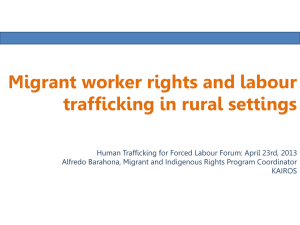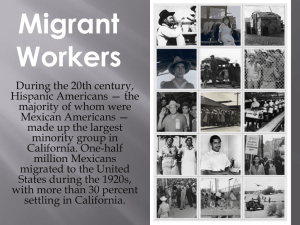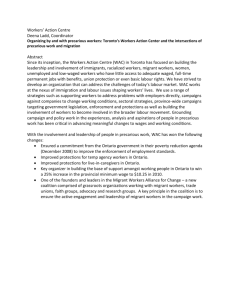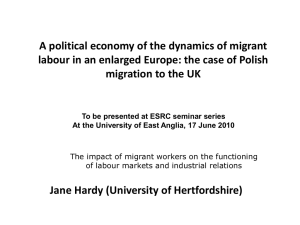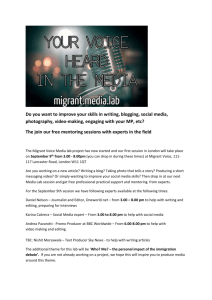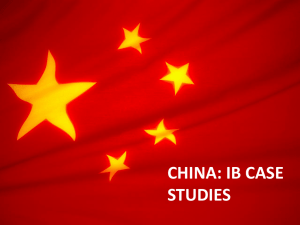Confronting the `Truth` About Law: Migrant Labour, Exploitation and
advertisement
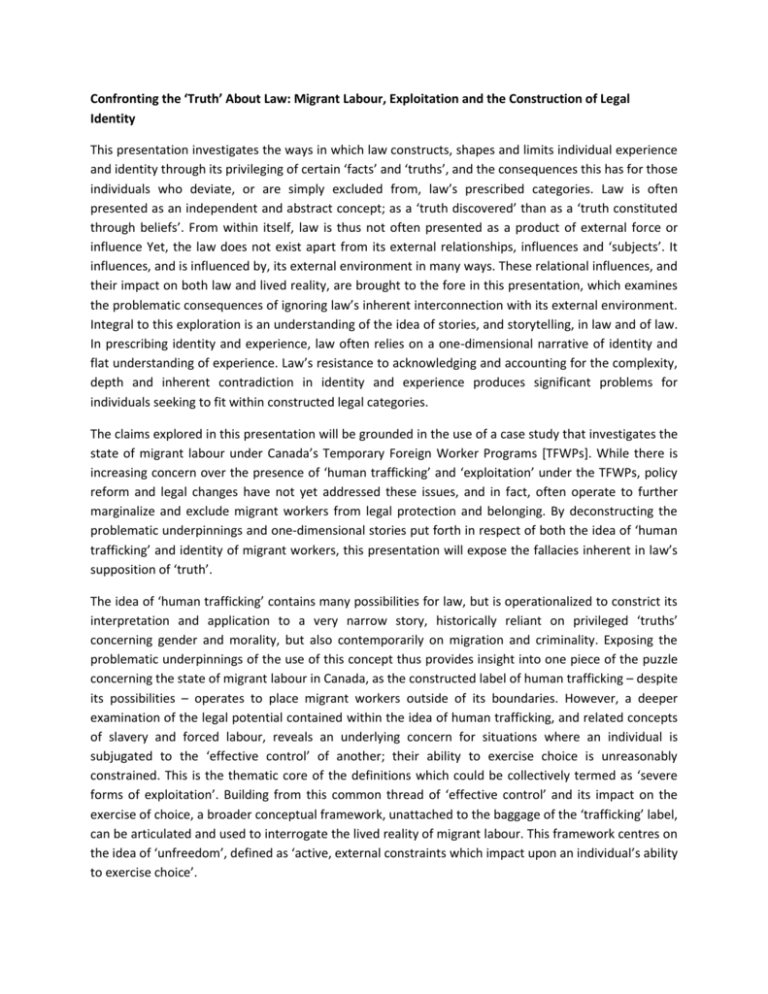
Confronting the ‘Truth’ About Law: Migrant Labour, Exploitation and the Construction of Legal Identity This presentation investigates the ways in which law constructs, shapes and limits individual experience and identity through its privileging of certain ‘facts’ and ‘truths’, and the consequences this has for those individuals who deviate, or are simply excluded from, law’s prescribed categories. Law is often presented as an independent and abstract concept; as a ‘truth discovered’ than as a ‘truth constituted through beliefs’. From within itself, law is thus not often presented as a product of external force or influence Yet, the law does not exist apart from its external relationships, influences and ‘subjects’. It influences, and is influenced by, its external environment in many ways. These relational influences, and their impact on both law and lived reality, are brought to the fore in this presentation, which examines the problematic consequences of ignoring law’s inherent interconnection with its external environment. Integral to this exploration is an understanding of the idea of stories, and storytelling, in law and of law. In prescribing identity and experience, law often relies on a one-dimensional narrative of identity and flat understanding of experience. Law’s resistance to acknowledging and accounting for the complexity, depth and inherent contradiction in identity and experience produces significant problems for individuals seeking to fit within constructed legal categories. The claims explored in this presentation will be grounded in the use of a case study that investigates the state of migrant labour under Canada’s Temporary Foreign Worker Programs [TFWPs]. While there is increasing concern over the presence of ‘human trafficking’ and ‘exploitation’ under the TFWPs, policy reform and legal changes have not yet addressed these issues, and in fact, often operate to further marginalize and exclude migrant workers from legal protection and belonging. By deconstructing the problematic underpinnings and one-dimensional stories put forth in respect of both the idea of ‘human trafficking’ and identity of migrant workers, this presentation will expose the fallacies inherent in law’s supposition of ‘truth’. The idea of ‘human trafficking’ contains many possibilities for law, but is operationalized to constrict its interpretation and application to a very narrow story, historically reliant on privileged ‘truths’ concerning gender and morality, but also contemporarily on migration and criminality. Exposing the problematic underpinnings of the use of this concept thus provides insight into one piece of the puzzle concerning the state of migrant labour in Canada, as the constructed label of human trafficking – despite its possibilities – operates to place migrant workers outside of its boundaries. However, a deeper examination of the legal potential contained within the idea of human trafficking, and related concepts of slavery and forced labour, reveals an underlying concern for situations where an individual is subjugated to the ‘effective control’ of another; their ability to exercise choice is unreasonably constrained. This is the thematic core of the definitions which could be collectively termed as ‘severe forms of exploitation’. Building from this common thread of ‘effective control’ and its impact on the exercise of choice, a broader conceptual framework, unattached to the baggage of the ‘trafficking’ label, can be articulated and used to interrogate the lived reality of migrant labour. This framework centres on the idea of ‘unfreedom’, defined as ‘active, external constraints which impact upon an individual’s ability to exercise choice’. Examining the state and status of migrant labour through the lens of ‘unfreedom’ exposes a more nuanced understanding of the systemic issues underlying Canada’s TFWPs. Unpacking the myriad ways that law facilitates and produces conditions of unfreedom necessarily begins with the ‘truths’ espoused in relation to migrant workers and their place in Canadian society. Like the idea of trafficking, conceptions of migrant labour rest on a narrow, one-dimensional story, and produces an identity of migrant workers that reduces their position and value to one of ‘labour’ but not ‘persons’. The political and social marginalization of migrant workers facilitates the creation of unfreedom at the outset. Following from this, the core regulatory measures of the TFWP: the employer-specific work permit; eligibility and limits on participation; and, monitoring and regulation of third-party actors, are constructed in ways which significantly constrain the opportunity for and exercise of choice for migrant workers. The legal structure of the TFWPs thus produces condition of, and for, unfreedom. The state of unfreedom created through the legal regime regulating the TFWPs further directly facilitates the exploitation of migrant workers by private actors – notably, employers and recruiters. Thus, the privileged ‘truths’ or conceptions about migrant labour and its place in Canadian society, which both inform and are informed by the legal regulations in place, create significant harm by marginalizing and excluding migrant workers from social belonging and legal protection. Understanding law as deeply interconnected to its external environment, as constructed and influenced by its external environment, not only exposes the problematic underpinnings of its current approach and impact on the people, places and things it governs, but also brings to light the possibility of reimagining law, and is potential as a vehicle for change. This presentation will thus conclude by offering insights into the ways we can think differently about law itself that will carry forward its commitment to human rights, equality and freedom, and what this could mean for migrant workers in Canada.

